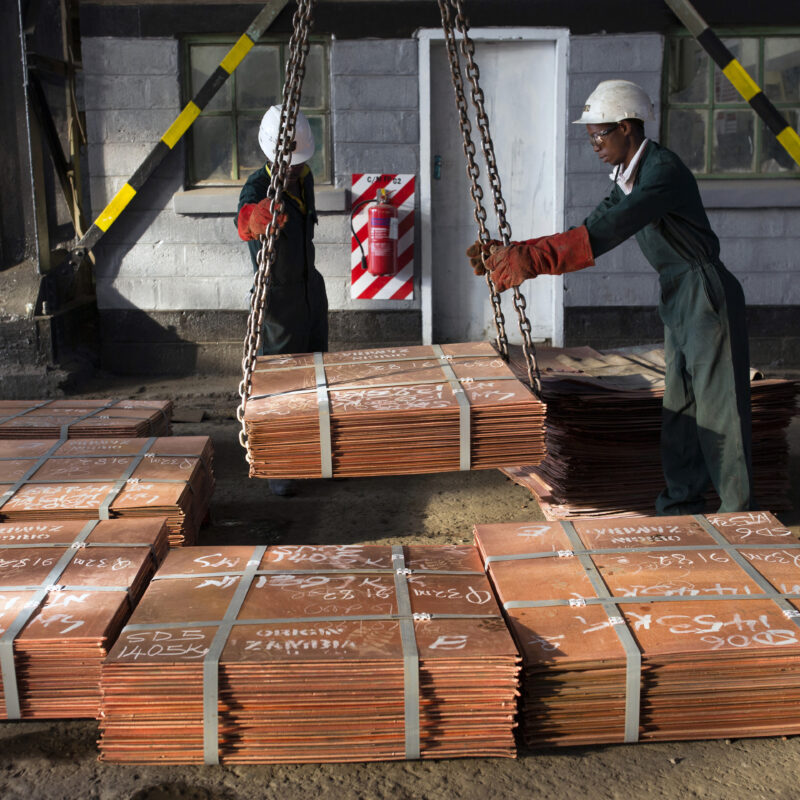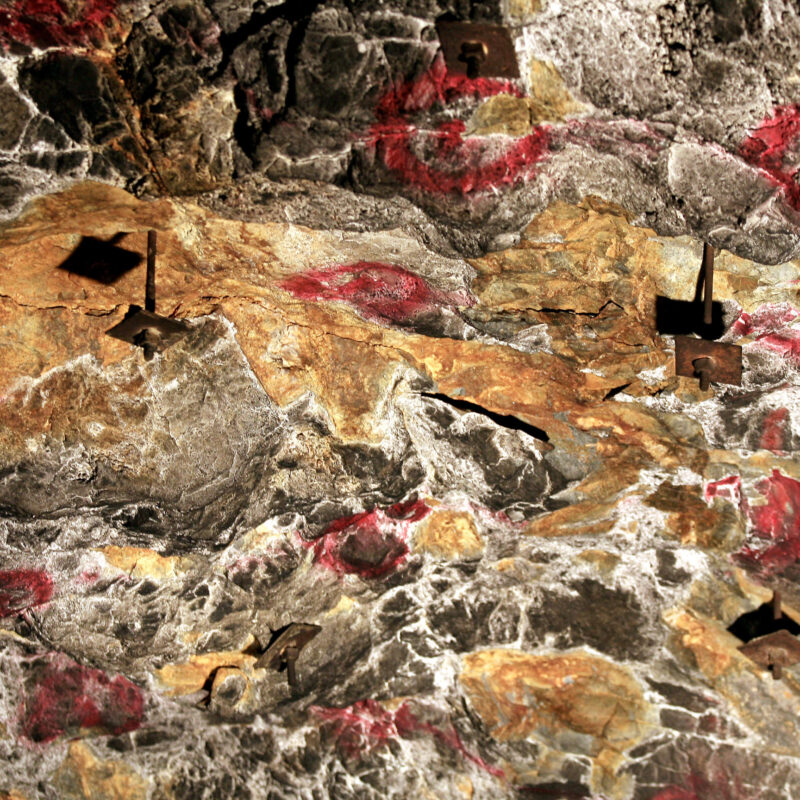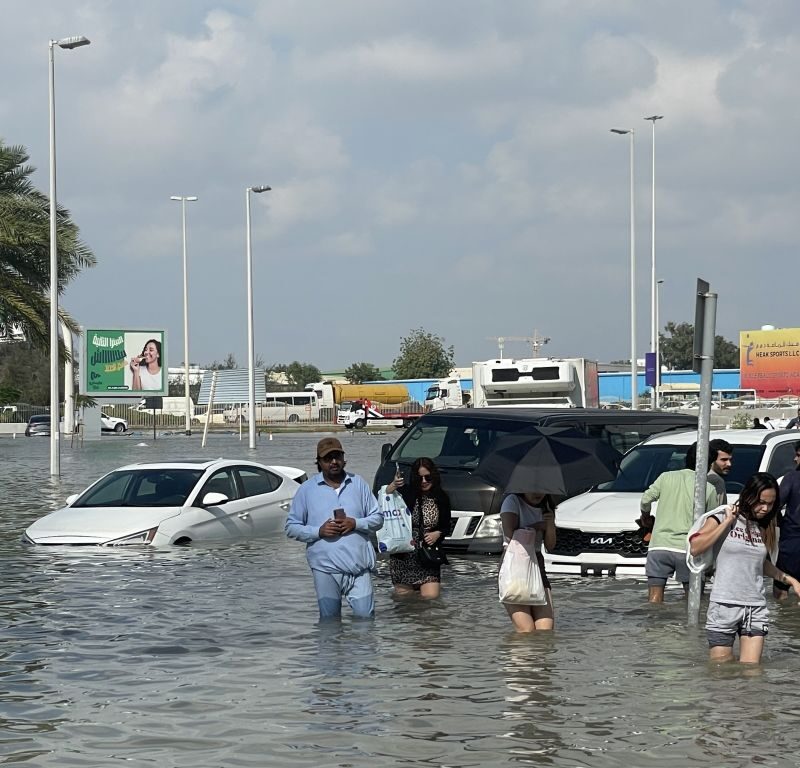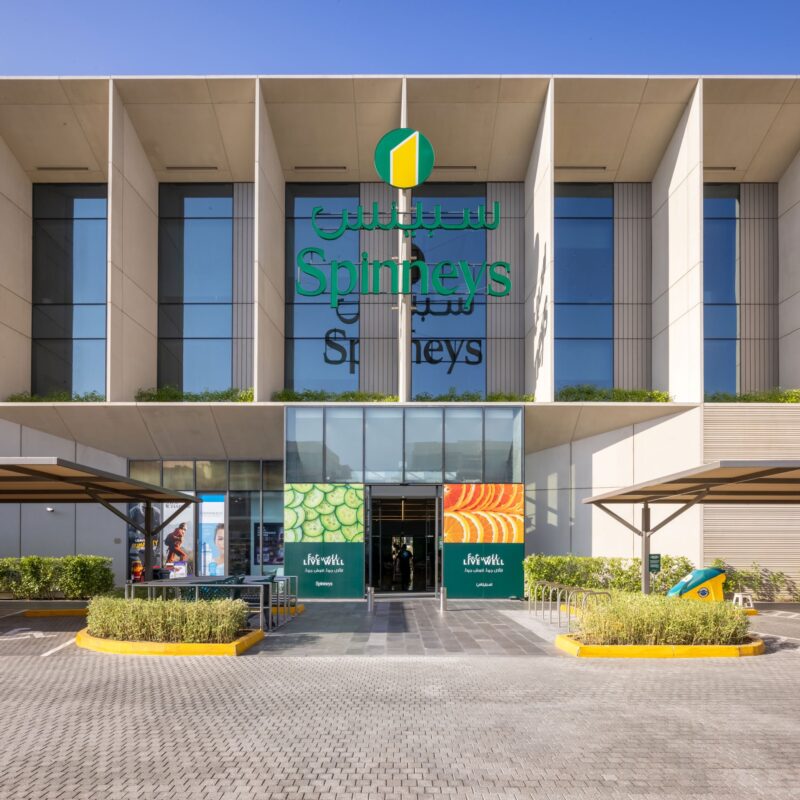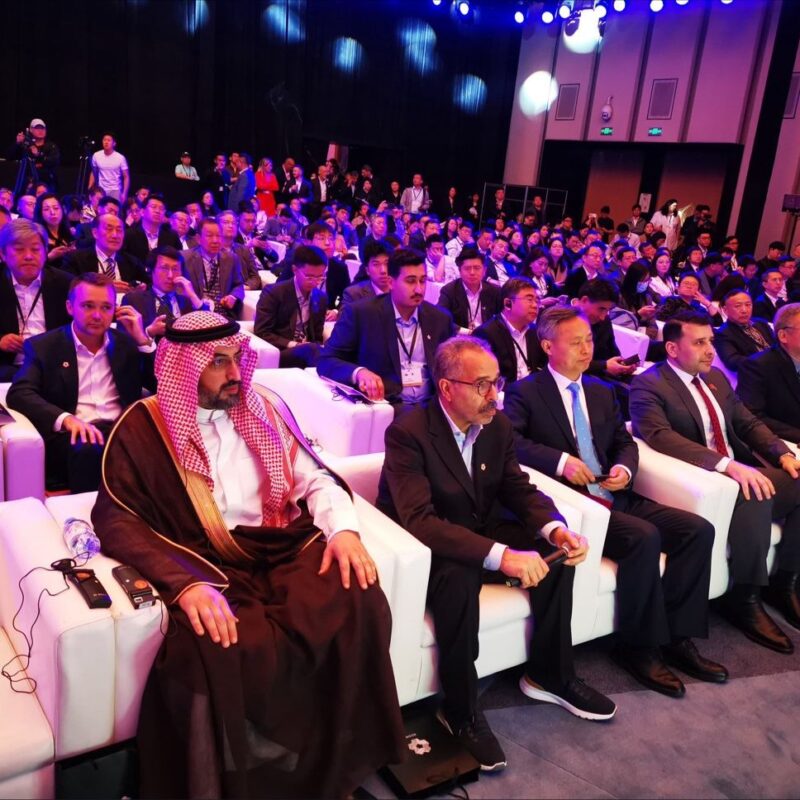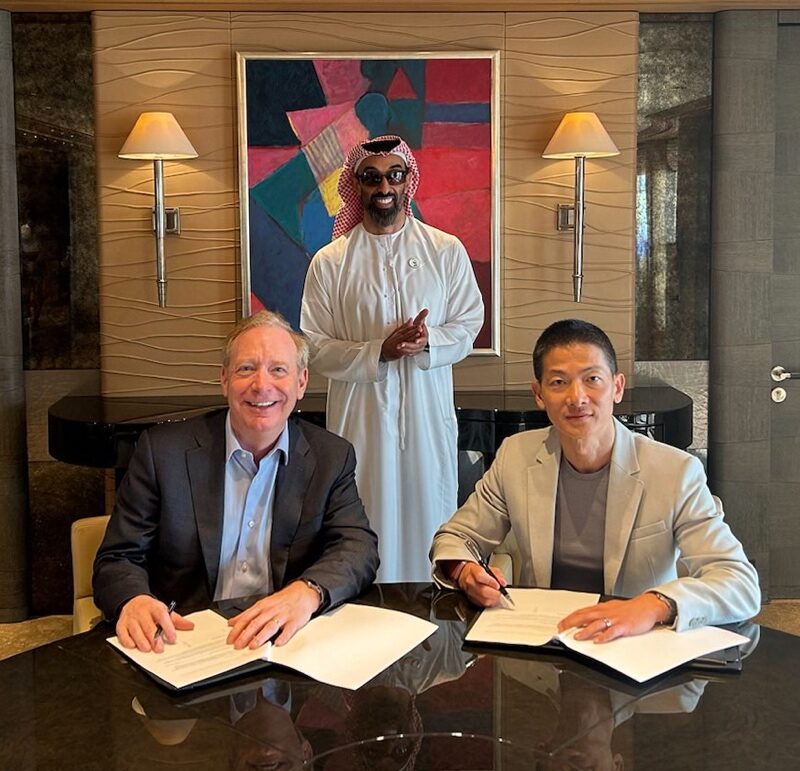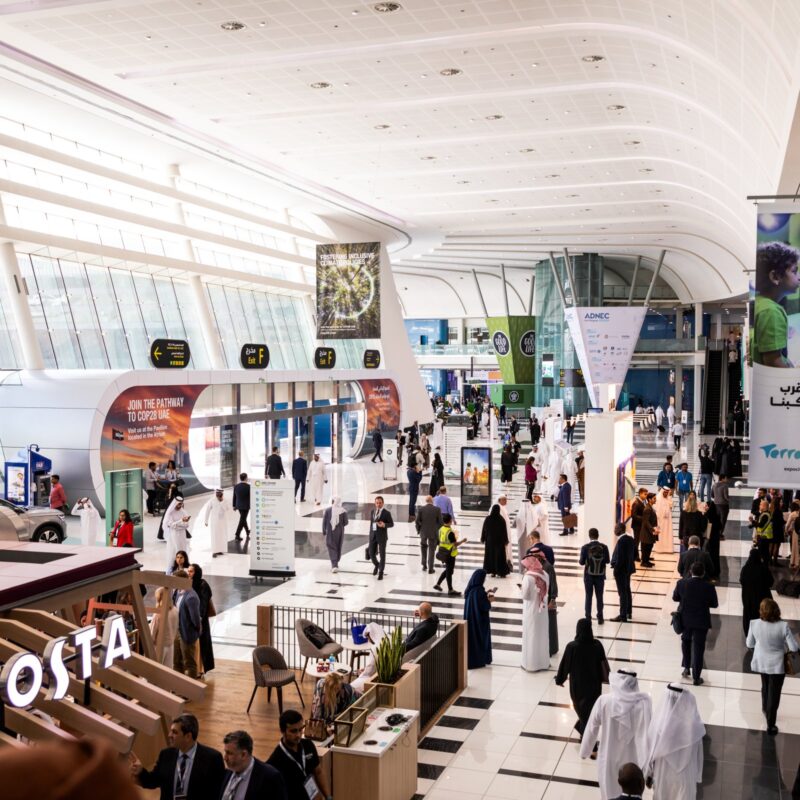Israeli tech companies headed into another tough year
Don’t expect Gulf investors to pick up the slack for Israeli businesses burning through their cash, says Avi Hasson, CEO of Start-Up Nation Central
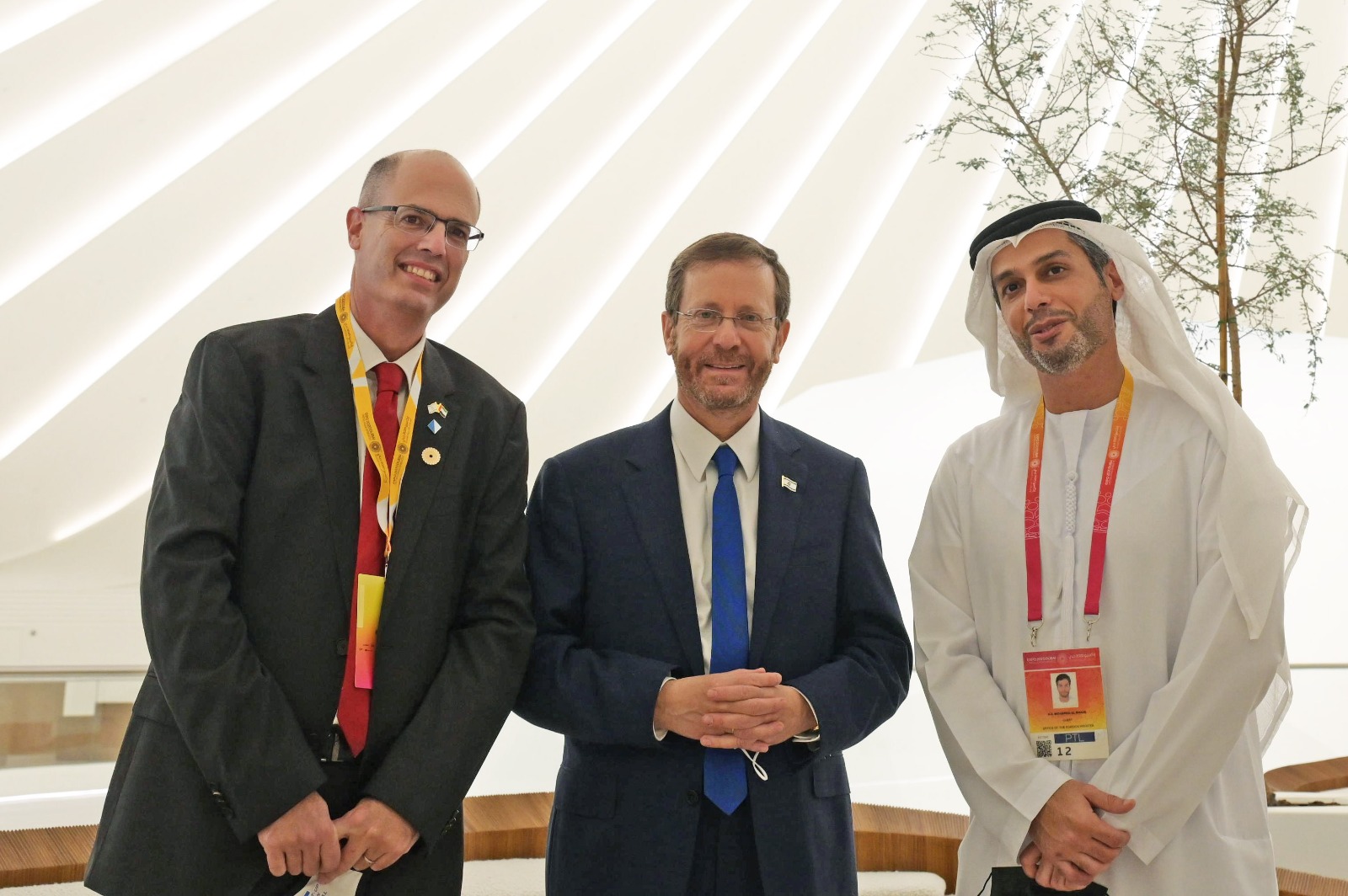
Amos Ben Gershom/GPO
Start-Up Nation Central CEO Avi Hasson (left) with Israeli President Isaac Herzog and UAE Ambassador to Israel Mohamed Al Khaja in UAE in February 2022
After a painful year for Israel’s startups, 2023 won’t bring much relief, and salvation is unlikely to come from Gulf investors, Israeli tech industry leader Avi Hasson said.
Israeli technology companies attracted $15.5 billion in investment last year, down 43% from a record $27 billion in 2021, according to a Jan. 10 report by Start-Up Nation Central, a nonprofit organization based in Tel Aviv that promotes the country’s tech industry. Hardest hit was cybersecurity, a sector closely identified with Israeli expertise, while the report found that startups developing agricultural and food technologies emerged fairly unscathed. The decline in investment was slightly sharper than in the U.S., where funding for startups dropped 40%, the report said.
Even as the United Arab Emirates and Israel begin operating this year under a free-trade agreement that is projected to generate an annual $10 billion in economic activity by 2026, the relationship will be characterized by caution, Hasson, CEO of Start-Up Nation Central, told The Circuit.
Investors from Arab countries that normalized relations with Israel in 2020 under the U.S.-brokered Abraham Accords are going to be “more cautious, more prudent,” and more demanding of “due diligence” before agreeing to commit funds, Hasson said in an interview. With the 43% drop in venture capital investment and cash-starved firms carrying out successive waves of layoffs, Hasson said the bad news isn’t over. “Expect more of that in 2023,” he said. Israel taps into many of the same venture capital sources as Silicon Valley companies do, but the blow to raising cash from this year’s economic contraction is greater because of the market’s smaller size, he said. “Every shock has a bigger impact here,” Hasson said.
While the advent of normalization raised hopes in Israel that the UAE and Bahrain would be deep sources for investment, Hasson said expectations were inflated. “We did not see an avalanche of investors coming from the Gulf… with open checkbooks,” he said. “We are still in the [phase of] relationship-building and trust-building.”
Much of the Emirati money in Israeli companies has come from Abu Dhabi-based sovereign wealth funds, including Mubadala Investment Co.’s $1.1 billion purchase of a 22% stake in Israel’s offshore Tamar natural gas field and its reported $100 million investment in six Israeli venture capital funds. Another sovereign fund, ADQ, offered last month to buy control of Phoenix Holdings, Israel’s biggest insurance company. Besides the inherent caution when it comes to Israel, Hasson said UAE investors are known for their thoroughness and patience in examining all potential deals.
“These are well-trained, seasoned, sophisticated, globally spread investors,” he said. “Unlike some of the founders and investors in Israel, they’ve seen multiple economic cycles. They know that what we’re seeing today is exactly that. They know to adjust their investment strategies. They know there are always winners and losers to different cycles, and they will make the adjustments.”
It’s that breadth of experience and professionalism that Hasson believes will lead to sustained growth in investment once the economy improves.
“Gulf people didn’t go crazy last year in terms of their investment in Israel, and I don’t think they will stop answering the phone calls next year,” he said. “I don’t expect the doors to shut down, God forbid, on either side.”
Before joining Start-Up Nation Central, Hasson, 52, was the founding director of the government’s Israel Innovation Authority and served as the Ministry of Economy’s chief scientist. With an MBA from Tel Aviv University earned after serving in army intelligence, Hasson was a general partner for 10 years at Gemini Israel Ventures, one of the early VCs investing in Israeli technology startups.
Israeli business executives poured into Dubai within weeks of the White House signing ceremony for the Abraham Accords on Sept. 15, 2020, making the three-hour flight along with a torrent of tourism that brought 200,000 visitors from the Jewish state. More than two years later, Emiratis and Israelis are still working to deepen the relationship.The Mubadala method of allocating money to the Israeli funds — Entree Capital, Aleph Capital, Mangrove Capital Ventures, Viola Ventures, MizMaa and Pitango — is a model for how to explore new markets, Hasson said.
”It’s the Gulf fashion of building a relationship, forming trust, hiring people, learning the culture and so on,” he said. “That’s a very smart approach. Many times, when you want to be an active investor in a new market, the first thing you do is you invest in the local investors. And through that, you get more acquainted with the local ecosystem, with the deal flow, with the service providers. And many times, the next phase will be, you know, either being a single limited partner, or creating your own fund or making direct investments, sometimes initially co-investing with those funds, and then moving to direct investment.”
While many Israeli companies are trying to raise cash from Gulf investors, Jerusalem-based OurCrowd is one of a few Israeli firms that is making investments in the Gulf. It recently opened a center in Abu Dhabi to cultivate companies working in the field of artificial intelligence.
“We still might see Israeli companies where there’s a very, very clear business value in setting up shop there – I think we’ll see a few,” Hasson said. “But in general, it’s obvious that this is going to be a slower year, where companies are going to take a hard look into their expected cash flows, and therefore rationalize their expenses. The appetite of expanding globally, creating new sites and so on is going to be something that has diminished.”
The decline in funding for startups focused on cybersecurity is partly the product of investor enthusiasm for those areas in previous years, Hasson said.
“In 2021 this was the sector that moved faster than others, that had the majority of the less sophisticated, more generalized – I want to say tourists – coming into it,” he said.
On the other hand, he said the strength of investment in agritech and food security reflected concern about some of the region’s biggest challenges.
“It’s not a coincidence because when this sort of cycle hits in things like crypto or something completely different, the metaverse, all of a sudden, they become less important,” Hasson said. “They’re nice to have, you know, they’re there, we’ll get to them. Whereas food security remains something that is crucial.”
